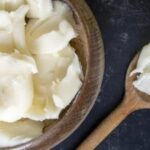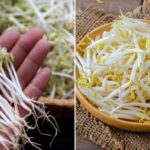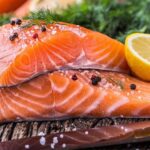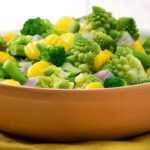Lard, a familiar traditional ingredient, or vegetable oil, a modern industrial product – which is truly healthier?
1. Lard: A Traditional Choice
Pros:
Lard contains a significant amount of saturated fat and monounsaturated fat, providing a good energy source. It also boasts a high smoke point, preventing burnt dishes and retaining the best flavor. Additionally, lard is a source of vitamin D, beneficial for bone health and the immune system, especially when sourced from naturally-raised pigs.
When used for frying, lard often imparts a richer flavor and aroma to dishes compared to vegetable oil. It is also generally more affordable than many premium oils, making it a budget-friendly option for families.
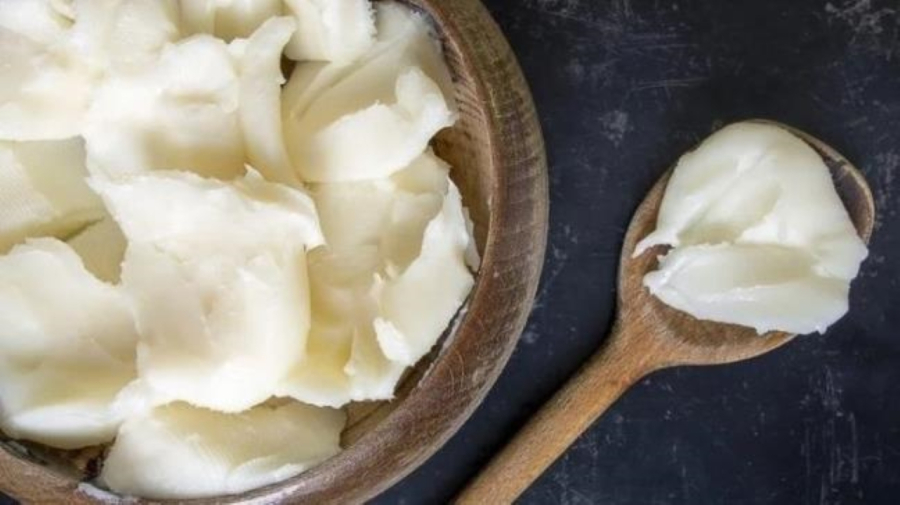
Frying with lard often results in tastier dishes with a richer flavor profile.
Cons:
The high saturated fat content in lard can increase bad cholesterol (LDL) levels, posing a risk to cardiovascular health. Those with medical conditions like hypertension, obesity, or diabetes should limit their consumption of animal fats. Lard’s complex structure can make it harder to digest than some vegetable oils, and improper storage may lead to rancidity and food safety issues.
2. Vegetable Oil: A Modern Alternative
Pros:
Vegetable oils, especially olive, canola, and sunflower oils, are rich in polyunsaturated and monounsaturated fats. These fats are beneficial for heart health, helping to lower bad cholesterol and raise good cholesterol (HDL) levels. Olive oil, in particular, contains antioxidants with anti-inflammatory and cell-protective properties.
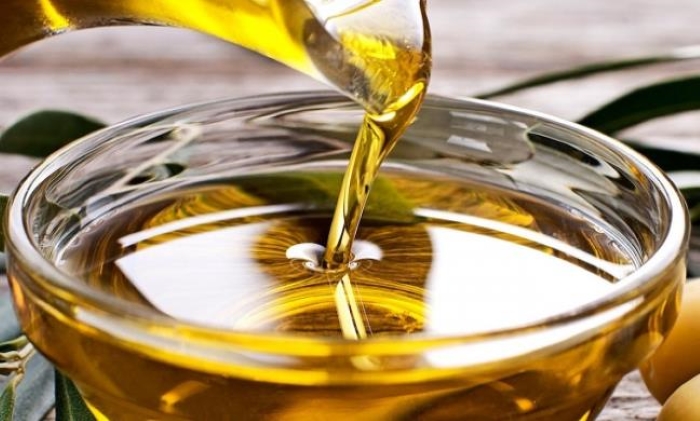
Vegetable oils are heart-healthy, helping to lower bad cholesterol and raise good cholesterol levels.
Cons:
Not all vegetable oils are created equal. Industrially-processed oils, those containing preservatives, or oils reused multiple times, can produce harmful substances detrimental to health. Additionally, vegetable oils are not suitable for high-temperature frying due to the production of carcinogenic compounds.
3. Expert Recommendations
Flexible Combination: Avoid exclusively using either lard or vegetable oil. Opt for lard when stir-frying or deep-frying at high temperatures, and choose vegetable oils for lighter cooking methods like steaming, boiling, or light sautéing.
Quality Oil Selection: Prioritize cold-pressed, unrefined oils, and minimize the use of repeatedly heated vegetable oils.
Both lard and vegetable oil have their unique roles in cuisine and health. The key lies in using them appropriately and in moderation to maintain long-term well-being. Always opt for clean, quality ingredients that align with your family’s nutritional needs.
Pork Fat vs. Cooking Oil: Which is Healthier?
“The great culinary conundrum: vegetable oil vs. lard. Both have their place in the kitchen and in fostering health, but the key to their efficacy lies in moderation and wise usage. This is a highly debated topic, with passionate advocates on both sides. Getting it right is crucial for long-term health.”
























